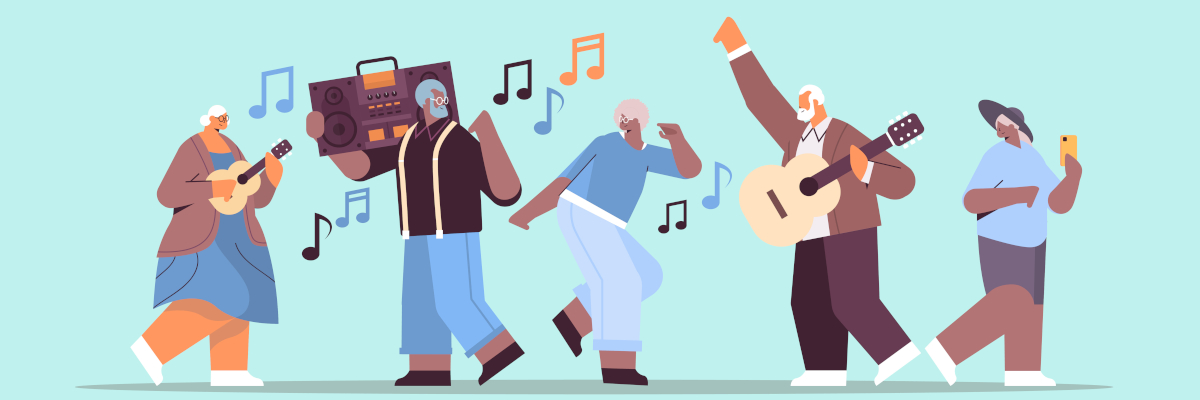Music and Your Wellbeing

Do you remember the joy of listening to music when you were a kid? Maybe you had a favorite song that you would sing along to, or a cassette tape that you would play over and over again.
Music has a way of making us feel good, even when we are going through tough times. But did you know that music can also have a positive impact on your wellbeing?
According to mind.org, music can increase our dopamine levels by up to 9%. Dopamine, sometimes referred to as the feel-good chemical in our brains, is responsible for regulating our mood, motivation, and reward system. It can even help us cope with stress, anxiety, and depression.
But not all music is created equal. Some types of music may be more stimulating and beneficial than others, depending on the task at hand and the person. For example, classical music is often recommended for improving focus, creativity, and concentration, as it has no lyrics yet provides a steady tempo. On the other hand, nature sounds, instrumentals, epic fantasy music, and lo-fi beats can create a relaxing and pleasant atmosphere by blocking out distracting noises.
Surprisingly, music can also improve our physical health, as it has been associated with significant beneficial effects on physical performance and oxygen consumption during exercise. Music has been found to lower blood pressure levels, heart rates, and the stress-inducing chemical, cortisol.
So how can you incorporate more music into your life? Here are some easy ways:
- Create a playlist of songs that make you feel happy, calm, or inspired. Keep it within easy reach and listen to it whenever you need a boost.
- Use music as a cue for different activities. For example, play upbeat music when you wake up, soothing music when you go to bed, or classical music when you may be lacking focus.
- Explore new genres and artists that you haven't heard of before. You might discover something that resonates with you.
- Sing or hum along to your favorite tunes. This can release tension and improve your mood.
- Learn to play an instrument or join a choir. This can challenge your brain and foster social connections.
Music is a wonderful gift that can enrich your life in many ways. It can help you express yourself, connect with others, and cope with challenges. Most importantly, music is one of the keys that can unlock positive wellbeing. So go ahead and enjoy the music!
Featured Blogs
- Is celebrating your 100th birthday no longer a dream?
- Medicare and Medicaid: Dual eligibility
- What’s Keeping You from Losing Weight?
- Music and Your Wellbeing
- Your NEW Social Security Statement
- How to Dispose of Unused Medications
- Smart Home Systems: Promoting a Comfortable Environment for Seniors
- Aging and Our Body’s Ability to Heal Itself
- Keeping Health Insurance After a Layoff
- Waking Up to the Impact of Insomnia
- How Life Insurance Benefits Women
- What experts say about raising the retirement age
- Coverage for healthcare treatment denied? Here's what you can do.